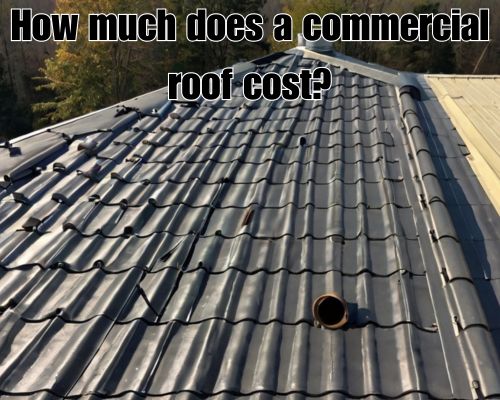Plumbing is an essential component of any home or commercial building, but many Australians overlook its lifespan until problems arise. Understanding the life expectancy of plumbing systems can help homeowners and property managers make informed decisions about maintenance, repairs, and replacements. In this article, we will explore the average lifespan of different plumbing materials, factors that impact longevity, and essential maintenance tips for Australian homeowners.

How Long Do Plumbing Systems Last?
The lifespan of a plumbing system varies depending on the materials used, environmental factors, and how well it is maintained. Below is an overview of the average life expectancy of common plumbing materials found in Australian homes:
1. Copper Pipes
Copper piping has been widely used in Australia due to its durability and resistance to corrosion. On average, copper pipes can last 50 to 70 years if properly installed and maintained. However, areas with high acidity in the water supply can lead to faster deterioration.
2. PVC Pipes
PVC (Polyvinyl Chloride) pipes are commonly used for drainage and waste systems. They have an average lifespan of 25 to 40 years. While they are resistant to corrosion, prolonged exposure to UV light and extreme temperatures can reduce their longevity.
3. Galvanized Steel Pipes
Once a popular choice in older Australian homes, galvanized steel pipes typically last 20 to 50 years. However, they are prone to rust and corrosion over time, which can lead to leaks and water contamination.
4. PEX Pipes
Cross-linked polyethylene (PEX) pipes are a newer alternative with a lifespan of 40 to 50 years. They are highly resistant to scale buildup and corrosion, making them ideal for modern plumbing systems in Australia.
5. Cast Iron Pipes
Cast iron pipes, primarily used for sewer and drainage systems, can last 50 to 100 years. While durable, they are susceptible to rust and require regular maintenance to prevent blockages.
Factors Affecting Plumbing Longevity in Australia
Several factors influence the lifespan of plumbing systems across Australia, including:
1. Water Quality
Hard water, which contains high levels of minerals such as calcium and magnesium, can accelerate pipe corrosion and scale buildup. Areas such as Perth, Adelaide, and parts of Queensland are known for having hard water, which may reduce the lifespan of plumbing components.
2. Climate and Weather Conditions
Regions experiencing extreme temperatures, such as Alice Springs or Melbourne, can cause pipes to expand and contract, leading to stress fractures over time. Additionally, coastal areas like Sydney and the Gold Coast may experience accelerated pipe corrosion due to salt exposure.
3. Installation Quality
Poor installation practices can significantly reduce the longevity of plumbing systems. Hiring a licensed and experienced plumber ensures proper fittings, high-quality materials, and adherence to Australian plumbing codes.
4. Maintenance and Inspections
Regular maintenance and inspections can extend the lifespan of plumbing. Neglected pipes are more likely to develop leaks, blockages, and corrosion.
See https://plumberwarragul.com.au/ for more.
Signs That Your Plumbing System Needs Replacement
Recognizing the signs of aging plumbing can prevent costly repairs and water damage. Some key indicators include:
- Discolored Water – Brown or rusty water may indicate corroding pipes.
- Low Water Pressure – A sudden drop in pressure could signal leaks or blockages.
- Frequent Leaks – Recurring leaks suggest that pipes are deteriorating.
- Unpleasant Odors – A sewage smell could indicate pipe damage or blockages.
- Noisy Pipes – Banging or rattling noises may be due to loose fittings or air pockets.
Maintenance Tips for Prolonging Plumbing Lifespan
To maximize the life expectancy of your plumbing system, follow these maintenance tips:
1. Schedule Regular Inspections
Engage a professional plumber especially with Dean Owens from Plumber Warragul for annual inspections, especially if your property is older or located in an area with challenging environmental conditions.
2. Avoid Chemical Drain Cleaners
Harsh chemicals can corrode pipes over time. Instead, opt for natural solutions like a baking soda and vinegar mixture or invest in professional drain cleaning services.
3. Insulate Pipes in Cold Areas
For homes in colder regions such as Canberra or Tasmania, insulating pipes can prevent freezing and potential bursting during winter.
4. Replace Old Pipes Promptly
If your home has galvanized steel or lead pipes, consider upgrading to more durable materials such as copper or PEX.
5. Monitor Water Pressure
Excessively high water pressure can put stress on pipes and lead to leaks. Install a pressure regulator to keep water pressure within a safe range.
Plumbing Regulations in Australia
Australia has strict plumbing regulations to ensure safety and compliance. According to the National Construction Code (NCC) and the Plumbing Code of Australia (PCA), all plumbing work must be performed by a licensed professional. Homeowners should always check that their plumber is registered with the relevant state or territory authority, such as:
- NSW Fair Trading (New South Wales)
- Victorian Building Authority (VBA) (Victoria)
- QBCC (Queensland Building and Construction Commission)
- Consumer and Business Services (CBS) (South Australia)
- Building and Energy WA (Western Australia)
Conclusion
Understanding the life expectancy of plumbing systems in Australia is crucial for maintaining a safe and functional property. By knowing the lifespan of different pipe materials, being aware of local environmental factors, and implementing regular maintenance practices, homeowners can avoid costly repairs and extend the longevity of their plumbing infrastructure. If you’re unsure about the condition of your plumbing, consult a licensed Australian plumber to assess and recommend necessary upgrades or replacements.
Need a Plumbing Inspection?
If you live in Sydney, Melbourne, Brisbane, Perth, or Adelaide and need a professional plumbing assessment, contact a licensed local plumber today to ensure your system is in top condition!


